On the Frankfurt School and Critical Theory
This is an interview with Jose Ma. Sison by Jerry D. Imbong, on Sison’s views about the Frankfurt School of social theory and the Critical Theory so-called. PRISM’s source of the original text is a post on Jose Ma. Sison’s Facebook page, dated 26 April 2020. (See the link to the FB post at the bottom of this page.)
On the Frankfurt School and Critical Theory
Interview with Jose Maria Sison by Prof. Jerry D. Imbong
I am Jerry D. Imbong, a faculty member of the Visayas State University (VSU), Baybay City, Leyte [in the Philippines—Eds.]. I teach Social Science subjects. I am also a member of CONTEND and a core group member of the Philippine Ecumenical Peace Platform (PEPP). At present, I am doing research about your [Jose Ma. Sison’s] ideas on Marxism, Leninism, and Maoism as they are applied in the concrete Philippine conditions.
Your numerous published works (including articles available online) have significantly helped me in my research. However, there are some topics which I failed to find from available sources I mentioned above, specifically, with regards to your views on Critical Theory (CT). Hence, I would greatly appreciate it if you can share with me your insights on the following questions:
1. JDI: What are your views on the ideas of the leading representatives of the Frankfurt School? You don’t have to discuss their ideas one by one but you can just give your insights on the founding of the Frankfurt School, its goals and its influence on the Leftist politics.
JMS: The Frankfurt School is described as a school of social theory and critical theory associated with the Institute for Social Research at Goethe University Frankfurt. The institute was founded in 1918 and was funded by the wealthy doctoral student Felix Weil who wished to solve the problems of implementing socialism.
The reputation of the institute as Marxist was enhanced by the participation of Georg Lukacs and Karl Korsch in the early years of the institute. But from the beginning to the present, we can describe the school as homogeneously a school of idealist subjectivism, which involves at the same time the heterogeneity of its leading representatives.
The school proclaims as its goal: to make an academic and public critique of society in an interdisciplinary way and to change society by proposing ways of social development and promoting rational institutions. It is opposed to both capitalism and Marxism-Leninism. Both are supposed to hold ideologies incapable of solving the problems of the 20th century. It is eclectic by seeking philosophically to critique and learn from Marx and so many more idealist philosophers, including Kant and Hegel.
Like the social democratic party of Germany, the leading representatives of the Frankfurt School are petty bourgeois subjectivists and bourgeois liberals using as garbs anti-capitalism and socialism with a mix of positive and negative references to Marx and Marxism. Germany is a country that is unique for having the proletarian revolutionaries, the petty bourgeois liberals and fascists competing to appropriate the name of socialism.
2. JDI: Which ideas or themes of the Frankfurt School and Critical Theory do you support? Which do you oppose? Why?
JMS: I appreciate any school seeking to critique and change society. In the first place, Marx has taught us that we must engage in revolutionary critical-practical activity to change society and that there are various philosophies to interpret the world but the point is to change the world. He made a critique of the German idealist ideology and the capitalist political economy and produced dialectical materialism, laid bare the laws of motion of capitalism and paved the way for scientific socialism.
But in its long existence of more than 102 years, the Frankfurt School has done much of critiquing at the philosophical level from an idealist and subjectivist viewpoint and has not been a factor or party to the changing of society. Contrary to its proclaimed purpose of making a new society out of the morass of the Weimar Republic, the school has been at the most an intellectual gadfly to the movements led by communist, social democratic and fascist parties in Germany.
Some major representatives of the Frankfurt School make interesting reading when they critique capitalism. They provide good insights in literary criticism and sociological analysis as they face up to the bitter facts of capitalist reality. They make a good critique of the culture industry in the capitalist system. There is nothing new in this critique, however, because Marx has long pointed out that the dominant cultural activity in the superstructure reflects the economic and political dominance of the ruling class.
Despite its avowed purpose of critiquing and changing society, the various stalwarts of the Frankfurt School stand aloof from social conditions by generating their own subjectivist philosophical jargon and then debating these abstract terms among themselves in texts after texts. They have no sure footing in materialist-scientific philosophy, especially when they exaggerate individual psychology and linguistics and play down the importance of economics and politics in social analysis. And they avoid the reality of classes and class struggle and have disdain for the subjective forces (party, mass organizations and the like) that take advantage of the objective crisis conditions to make social revolution.
3. JDI: What are your criticisms of the Frankfurt School and CT?
JMS: The stalwarts of the Frankfurt School render a special service to the capitalist system of oppression and exploitation by misinterpreting or taking out of context the terms of Marxism and its further developments in revolutionary theory and practice. They perform the role of trying to confuse and outflank the Marxists. And in a puerile way, they seem to forget that they adhere to their own philosophy or ideology when they redefine the term ideology to make it a pejorative expression beyond its simple meaning of being a system of ideas and the study thereof.
Erich Fromm has the distinct achievement of applying dialectics by trying to split the young Marx from the more mature Marx. The notion is spread that the young Marx was more humane by being a Hegelian idealist in dealing with the issue of alienation. But the discussion by Marx in his early philosophical and economic manuscripts is all about how the capitalist class alienates the surplus value from the working class, makes congealed or dead labor dominate living labor and proceeds to dominate the process of oppression and exploitation in an all-round way.
There are times when the Frankfurt school is in an embarrassing position, such as when in its early years, Herbert Marcuse proposed “Heideggerian Marxism” as the guiding thought for the school. But before Marcuse could drop his newly-minted ideology, Heidegger declared his loyalty to Hitler and joined the Nazi Party in 1933. Adorno debated with Marcuse and opposed “Heidegger Marxism” but the debate was all about the esoteric terms of individuality and identity as cloning from an abstract category, not about Heidegger’s irrationality of joining the Nazi Party.
The Frankfurt School loves to present itself as distinctively anti-authoritarian. But associates of the school like Hannah Arendt have been useful tools of US imperialism in the Cold War. By drawing an ideological and political spectrum, with fascism at one end and communism at the other end, implying that monopoly capitalism is the golden mean at the center on a sham Aristotelian plane.
The anti-authoritarianism of the Frankfurt School is no different from the anti-radicalism of Seymour Martin Lipset who puts US imperialism at the “democratic” center between the Radical Right and the Radical Left. Both diagrams are perverse with the obfuscation of the fact that the monopoly bourgeoisie uses fascism as its weapon after liberalism and social democracy prove to be ineffective in opposing and suppressing the forces of the Left and socialism.
Under the pressures of neoliberal globalization, leading representatives have tended to exaggerate their subjectivism and float in the backwash of social democracy and liberalism. Adorno and Horkheimer have withdrawn the purpose of changing society. Habermas has put forward a paradigm change to linguistic intersubjectivity to render “objectless” the dilemmas of idealist subjectivist philosophy.
There seems to be a loss of mission in critiquing Marxism because modern revisionism has been quite effective in revising and junking Marxism and in subverting and destroying socialism in the Soviet Union and China. But wait for awhile, as in the 20th century, the economic and financial crises are becoming more frequent and worse and are intensifying inter-imperialist contradictions and generating the conditions for the resurgence of the proletarian class struggle and the world proletarian revolution.###
Originally posted on Jose Ma. Sison’s Facebook page.
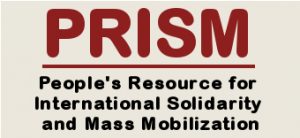
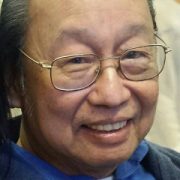
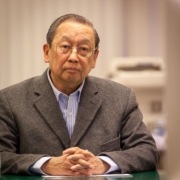

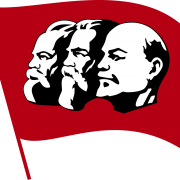
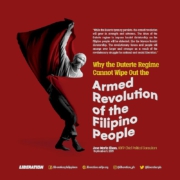
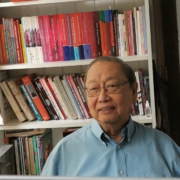

Leave a Reply
Want to join the discussion?Feel free to contribute!